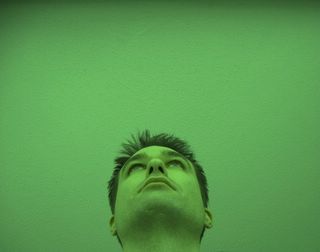The orphanage had long been stripped of its accreditations, and yet children still lived there. Eager couples no longer knocked on the front door — tentative, embarrassed, hopeful and doubtful all at the same time — to adopt a child and become a family. Only one caretaker remained, Miss Crustacienne. She was more of a figurehead to provide the semblance of adult supervision; the children were, in fact, self-governed. Between Miss Crustacienne and the more resourceful of the children, the place continued to run much as it had when it was a state-sanctioned institution. But sanctioned, it was no more. The state had withdrawn its license some time ago due to rumors of nefarious goings-on that were never substantiated; plus, the nation as a whole was undergoing a transition toward fostering children in private homes rather than in state funded facilities. The state was able to find foster homes for most of the children, while the remaining few stayed behind in Miss Crustacienne’s care.
At the time, everyone believed that the remaining children would eventually be adopted and then the orphanage would close its doors forever, but in actuality, these stragglers remained at the orphanage in perpetuity, or until such a time that they moved to the town proper if they so wished, typically taking up residence in one of the abandoned homes in town, which were plentiful in this era of Stuttersville.
Aside from these attritions, the number of children in the home did not dwindle as expected. Unwilling parents still dropped off their children so that they could become childless once again. Parents still died in farm accidents, burning homes, and car crashes, and sometimes no fosters could be found. Finally, there were those kids that, for one reason or another, never lasted long in foster care and were dispatched unceremoniously on the front steps by their wards.
While the orphanage of Stuttersville was no longer meant to be an orphanage at all, it nonetheless provided much needed refuge to those children cast rudderless on an ocean, vulnerable to unsavory elements of town, in need of nurturing, of schooling, of a tenuous sense of safety. And it was this environment that bred the Stuttersville Three: the Butcher, the Starlet and the Genius.
Postscript
Drawing on walls, Miss Crustacienne asks? Why yes, we let all of our children express themselves with crayons on the walls: sometimes finger paints or mud (or even stencils for those born without an ounce of creativity); whatever their urges demand. Does this teach them improper behavior, will they become graffiti artists? Any kind of art would be an improvement in this town. Who am I to tell a child that they need to stifle their creative instincts, that they need to stunt their expression to fit our expectations? Children are pure souls, before this world has a chance to tamper with their spirits; it is we as adults who are here to serve their needs, to feed and clothe them so that they can enjoy life unhampered by the necessities that bind us. We need to learn from them. We need to emulate them, not them us.
When I say children are pure souls, unadulterated, do not get the false impression that I mean they are angelic, good and loving. A pure soul is a tempest of extremes, of great cruelty and mischief, of joy and hugs, of pinching and kicking and spitting, of wonder, both questioning and knowing at the same time. A pure soul is angelic, good, and loving, until a cloud covers their brow and the little monsters come out to play.

